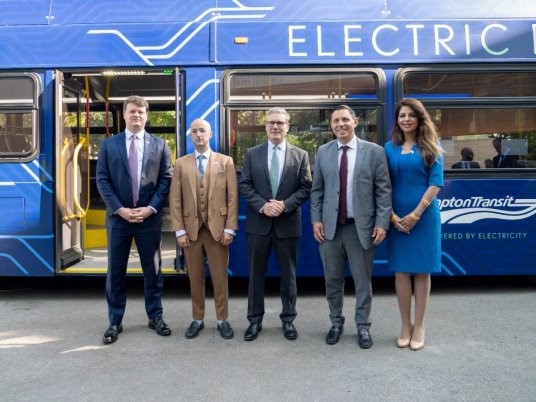Saturday, July 5, 2025
The Canada Infrastructure Bank (CIB) has announced a financing agreement with Parkland Corporation (Parkland), a North American convenience and fuel retailer for up to $210 million. The financing agreement positions Parkland to strategically expand its electric vehicle (EV) charging network in communities across Canada and paves the way for the installation of up to 2,000 new charging ports at up to 400 sites and represents the CIB’s second investment under its Charging and Hydrogen Refuelling Infrastructure (CHRI) initiative.
By providing loans towards the buildout of electric vehicle charging infrastructure, the CIB initiative aims to alleviate range anxiety and accelerate EV adoption, which will significantly reduce transportation sector greenhouse gas emissions. According to Natural Resources Canada, on-road transportation accounts for 18 per cent of Canada’s total greenhouse gas emissions, of which about two-thirds are produced by light duty vehicles or passenger cars.
“Our financing agreement with Parkland will bring approximately 2,000 public fast charging ports online across Canada,” said Ehren Cory, CEO of CIB. “Since the launch of our Charging and Hydrogen Refuelling Infrastructure initiative, we moved quickly to collaborate with the private sector and are nearing our initial investment target of $500M. As part of the increased sector target for Green Infrastructure, which is now $10B, we will continue to meet the strong market demand for this initiative and expand the availability of charging infrastructure.”
Parkland’s existing EV charging network is primarily located in British Columbia, which has the highest proportion of EV drivers in North America. Parkland is focused on targeting markets with tangible customer demand and is following consumer behaviour closely. In addition to expanding its charging offer within its existing retail fuel network, it is exploring additional third-party capital opportunities to help fund its own, and potential third-party sites.
“Our initial investments in EV charging have been positive. Strong customer utilization has validated our strategy to build scale in markets with tangible demand and has confirmed our belief that a high-quality customer experience matters,” said Darren Smart, SVP Energy Transition and Corporate Development of Parkland. “I want to compliment the CIB, on their financing model which helps incentivize and de-risk investments in EV charging. We will be strategic in deploying this financing to expand our charging network, while also exploring additional third-party capital opportunities to fund our own, and potential third-party sites.”
To date, CIB investments in electric vehicle charging infrastructure will enable the installation of approximately 4,000 public fast charging ports across Canada. The CHRI is focused on expanding the private sector’s rollout of large-scale charging and hydrogen refuelling infrastructure.
Featured image credit: CIB











